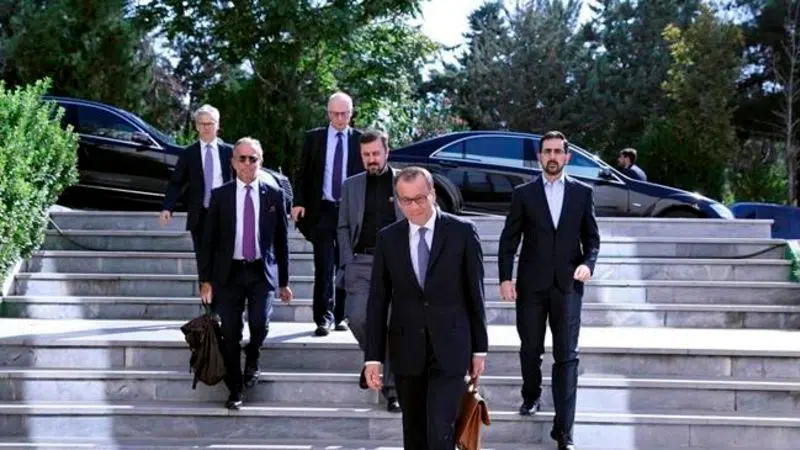
UN atomic official in Iran as it runs advanced centrifuges
TEHRAN, Iran — Iran defended Sunday its decision to use advanced centrifuges prohibited by its unraveling 2015 nuclear deal with world powers as a visiting top official of the United Nations atomic watchdog urged Tehran to offer “time and active co-operation” with his inspectors.
The visit and careful comments by Cornel Feruta, the acting director-general of the International Atomic Energy Agency, show the pressure his organization is now under as Iran steps further away from the deal the IAEA is meant to monitor.
Also Sunday, a top U.S. Treasury official visiting Abu Dhabi insisted that Iran’s oil exports “have taken a serious nosedive” after President Donald Trump withdrew America from the accord and imposed sanctions on its energy industry. Her comments came as Iran acknowledged its oil tanker pursued by the U.S. had “docked on the shores of the Mediterranean Sea” after satellite pictures showed it off the coast of Syria, despite a pledge by Tehran it wouldn’t go there after being seized.
Iran has already crept past limits the deal imposed on nuclear enrichment and its uranium stockpile. It is trying to pressure Europe to find a way to sell crude oil abroad despite U.S. sanctions.


